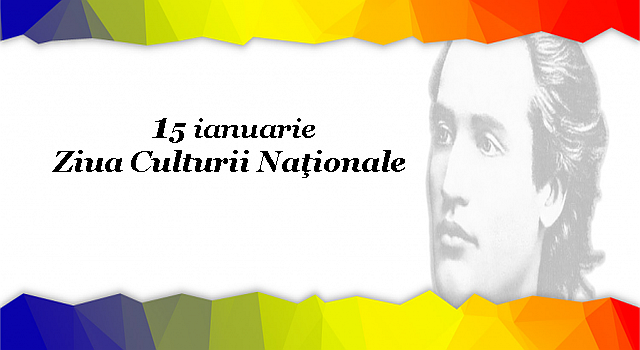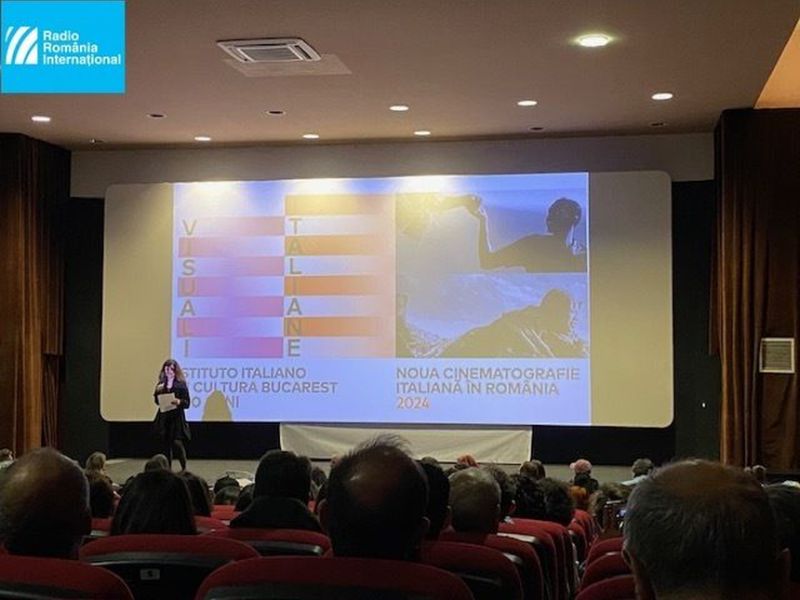What we learn in school about poet Mihai Eminescu
Two teachers of Romanian literature, Dorica Boltaşu Nicolae and Dumitriţa Stoica, talk about Eminescy's poetry.
Warning: Trying to access array offset on null in /home/web/rri.ro/public/wp-content/themes/rri/template-parts/content.php on line 53

Warning: Trying to access array offset on null in /home/web/rri.ro/public/wp-content/themes/rri/template-parts/content.php on line 98
Corina Sabău,
25.01.2020, 14:00
Quite often, labels such as ‘canonical writer’ or ‘national poet’ accompanied by literary commentaries that have little to do with the contemporary language and sensitivity make students reject the work of classical writers. In today’s edition of World of Culture we have invited two teachers of Romanian literature, Dorica Boltaşu Nicolae and Dumitriţa Stoica. They will tell us how the work of Romania’s national poet Mihai Eminescu, whose 170th birth anniversary was marked on January 15, is regarded by young people and how Eminescu’s work should be taught to arouse young people’s curiosity and interest in his work. Dumitriţa Stoica is in favor of a friendly approach to Eminescu’s work that should avoid clichés and labels. She also believes that a careful selection of information and an accessible discourse, adapted to the young people’s cultural background, are essential in the teaching process.
“Young people need to be also aware of the fact that most of Eminescu’s works have generated lots of criticism and analysis books. They should understand the plurality of interpretations of Eminescu’s work, which is important for creating a cultural dialogue between the poet and the readers. Moreover, I have noticed that most pupils are naturally attracted to the essence of Eminescu’s works. So we could approach the teaching process in this way, without omitting the artistic language. Teachers can make Eminescu’s work accessible to students starting from the main themes in his work. Of course, young people are interested in such themes as love, taking refuge into an imaginary world, the good and the evil, etc. I had a pleasant surprise with some 11th graders when I taught them the poem Glossa. In Eminescu’s work, I personally like mainly those texts that temper a little that tragic feeling of the existence through the attitude of man as a spectator. And this poem is representative for such an attitude. Students were so much intrigued by the philosophy underlying the poem that a genuine debate started in the classroom. For those who don’t know, the poem Glossa speaks about a philosophy of life that preaches a detached attitude, withdrawal from fighting, and these pro-active young people, as they called themselves, were really intrigued. On the other hand, some of the students in the class decoded the poem as being a form of therapy. Indeed, this poem may have a therapeutic value for many.”
Dorica Boltasu Nicolae noticed that many of her students were interested in Eminescu’s work and biography and that they wanted to know details about his friendship with other personalities of that time, such as writer Ion Creanga and critic Titu Maiorescu and about his love life.
“I kept in mind something that Radu Cosasu once said, that we are a mixture of Caragiale’s and Eminescu’s characters. Although I do not like clichés, and I avoid presenting Eminescu as a national poet, I always say that Eminescu and Caragiale are two great writers of Romanian literature, because each of them managed to depict an important part of our culture, hopes and dreams. I also tell them that Eminescu was the last great European romantic poet, to put him in the context. In fact, I start with romanticism, with a presentation of it, in order to help them understand where Eminescu is placed in a wider context. And I try to make comparisons. For instance, if we watch a movie made with the technology available today, and if we read the first part of the poem Calin, the words and images do not necessarily evoke nature in a recognizable manner, but somewhere, inside ourselves, those very images exist and Eminescu’s poems bring them to the surface. I have noticed that students are particularly interested in philosophic and cosmic poetry. When I tell them about La Steaua or The First Epistle, they realize how much Eminescu managed to describe things that science had never mentioned before. If I have very good students, I tell them that one of Eminescu’s great merits was that he managed to deconstruct, in poetries like Mitologicale, his own romantic universe. But I seldom get to explain such things.”





























